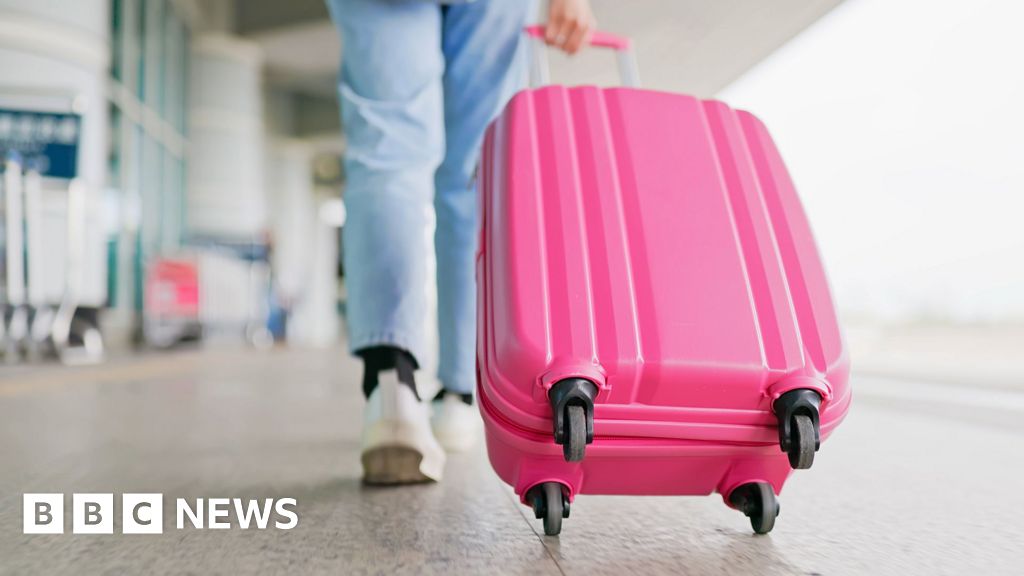ARTICLE AD BOX
Image source, Getty Images
England's city regions are set to receive billions of pounds to improve public transport in next week's Budget.
Chancellor Rishi Sunak will commit £6.9bn towards train, tram, bus and cycle projects when he sets out his spending plans on Wednesday.
Greater Manchester, the West Midlands and West Yorkshire are among the regions that will benefit.
The funding was welcomed by Greater Manchester Mayor Andy Burnham as "an important first step".
Areas set to receive funding include:
- Greater Manchester (£1.07bn): For next generation Metrolink tram-train vehicles; new bus corridors at Bury and Ashton-under-Lyme
- West Midlands (£1.05bn): For projects including Metro extension, including the completion of the Wednesbury to Brierley Hill extension
- West Yorkshire (£830m): Extending the West Bradford-Cycle Superhighway and installing electric vehicle charging stations in Kirklees neighbourhoods
- Liverpool City region (£710m): For new and renovated stations in Liverpool and Runcorn as well as an interchange project at St Helens
- South Yorkshire (£570m): Starting a Supertram renewal project and installing a "Dutch-style" roundabout in Barnsley town centre
- West of England (£540m): A fully prioritised bus route between Bristol and Bath
- Tees Valley (£310m): Upgrading Darlington and Middlesbrough train stations, and improving rail links in the region
Mr Sunak said: "There is no reason why somebody working in the North and Midlands should have to wait several times longer for their bus or train to arrive in the morning compared to a commuter in the capital.
"This transport revolution will help redress that imbalance as we modernise our local transport networks so they are fit for our great cities and those people who live and work in them."
Scotland, Wales and Northern Ireland will also receive extra funding through the Barnett formula - a mechanism the UK government uses to allocate additional money to the devolved nations when it spends more in England.
The £5.7bn is a five-year settlement, and has been increased from the initial £4.2bn proposed, the Treasury said.
The £1.2bn of funding to make bus services cheaper and more frequent is part of £3bn that Prime Minister Boris Johnson committed to spending on a "bus revolution" in March.
Labour's Andy Burnham said the cash was "an important first step towards a London-style public transport system for Greater Manchester".
But he added: "As welcome as it is, infrastructure investment alone will not make levelling up feel real to the people of Greater Manchester.
"That will only happen when the frequency and coverage of bus services are increased and fares are lowered to London levels," Mr Burnham added.
Andy Street, Conservative mayor of the West Midlands, said he was "absolutely delighted" to get the funding, which he said was the largest single transport sum the area had ever received.
"From more metro lines and train stations, to new bus routes and electric vehicle charging points, this cash will help us to continue to build a clean, green transport network that connects communities and tackles the climate emergency."
'Gaping holes in services'
Silviya Barrett, head of policy and research at the Campaign for Better Transport, welcomed the increased funding for trams, trains and "active travel" but wanted the government to end the process of regions competing for bus funding.
"We are concerned that the competitive funding process for buses could mean that investment does not reach everywhere that needs it.
"Many areas have bus fares that are too high and gaping holes in services, so they need funding to put their bus service improvement plans in place," Ms Barrett said.
The Confederation of Passenger Transport, which represents the bus and coach industry, said the fact the full £3bn the government had committed to spending on buses had not yet been reached meant the government's "rhetoric is unfortunately not being matched by reality".
Image source, Getty Images
Image caption, More money will go to the West Midlands MetroIt comes as a new survey shows reliance on cars has reached a 15-year high despite fewer people commuting during the pandemic.
More than four in five (82%) of 2,652 UK motorists surveyed by the RAC motoring organisation said they would struggle without a car. That is up from 79% in 2020 and 74% the previous year.
More than half said that there were no feasible public transport services in their area.
And people living in cities who have to drive are spending more time at the wheel, according to research from the Centre for Cities, which found motorists in Liverpool, Birmingham and Manchester spend more than 50 hours a year stuck in traffic.
Drivers in rural areas were also more likely to be car-dependent (87%) than their urban counterparts (77%).

 3 years ago
109
3 years ago
109








 English (US) ·
English (US) ·